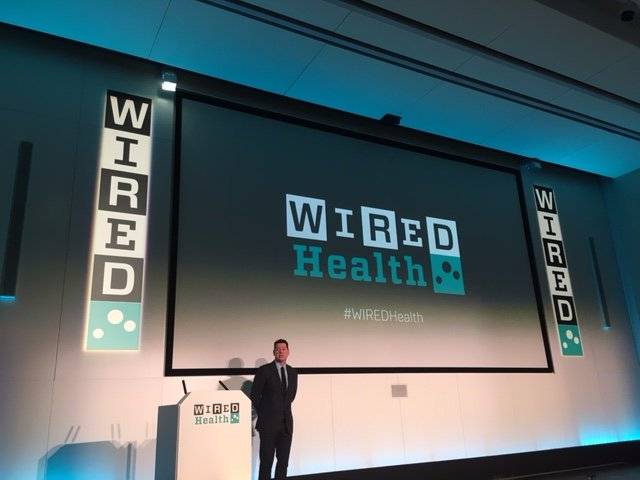The data will see you now!
18 May, 2017 Reading: 2:27 mins
What we took away from the WIREDHealth event 2017.

This year’s WIREDHealth 2017 in London, saw hundreds of pharmaceutical, healthcare and tech influencers come together for an inspiring and thought-provoking event. Speaker after speaker talked passionately on the future of healthcare: from the use of artificial intelligence to the potential benefits of psychedelic drugs in the treatment of PTSD. One thing was clear: the future face of healthcare is all about using state-of-the-art technologies with the ultimate goal of improving patient outcomes.
For those of you to whom the term ‘genome sequencing’ comes naturally there will be no surprises, but to Joe Public it’s a potentially scary prospect. Things are moving fast. Very fast. Very soon what was impossible and only a subject for films will become the new norm, and it’s quite possible ‘the data will be seeing us’ very soon!
So here’s what I gleaned from a day at WIREDHealth:
-
Genome sequencing – Sally Davies from the UK Department of Health talked about the work at Genomics England and the 100,000 Genomes Project. The ambitious project is sequencing 100,000 genomes from NHS patients with rare diseases with the aim of transforming the way they are cared for and to enable new medical research to find effective treatments for cancer and rare diseases.
-
Artificial Intelligence – with AI and machine learning able to analyse genomic profiles, practitioners will gain ‘actionable’ insight about patients that will allow them to understand what causes diseases. And with that insight comes an era of personalised medicine based on individual genomic sequences. All of this is a massive step forward from the mapping of the human genome in 2003.
-
Getting ‘high’ to treat PTSD? – public health specialist Khaliya Khan talked about her experiences with psychedelics to treat the mental trauma she had suffered – and the successful results she and many have experienced. Hallucinogenic medicine may well become an accepted treatment – in November 2016 the FDA in the US held a meeting to discuss a multi-centre study in which MDMA is given to patients with PTSD. This is a standard requirement and the final stage before a medicine can be approved for use beyond research.
-
Medicinal music – could music replace painkillers in the future? A serious question and dealt with effectively by Marko Ahtisaari who talked about the Sync Project which is the world’s first global experiment using music to improve sleep. He discussed the possibilities of developing music as a precision medicine by using biometric sensor data tuned to your heart rate. This can generate AI music which could ultimately produce ‘personalised music therapeutic interventions for a particular health outcome’.
As science and healthcare become ever more complex it becomes more and more difficult for audiences to understand. At KISS we’re experts at turning highly technical, scientific information into digestible and compelling marketing communications. So if you need help in redefining your healthcare offering contact us now…
